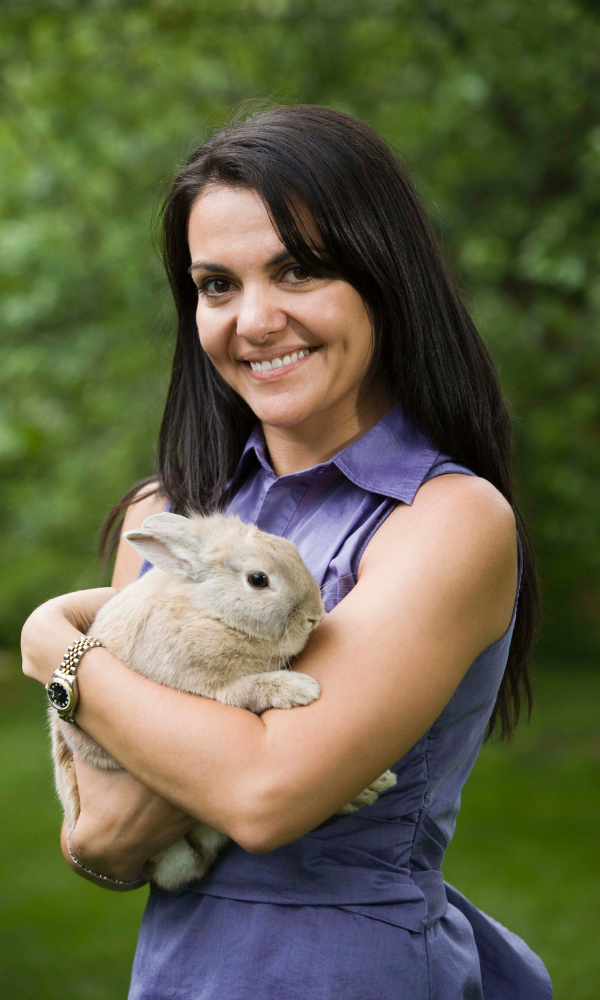If you’re like me, you may be wondering if rabbits can eat ginger. I did a little research and found that, yes, ginger is actually good for rabbits!
Rabbits are herbivores that mainly eat hay, fresh vegetables, and pellets. Some people wonder if ginger is a safe vegetable for rabbits to eat.
In this article, we will explore the answer to that question. We will also discuss the nutritional value of ginger and how much rabbits can typically consume without causing any harm. Keep reading to learn more!
Can rabbits eat ginger?
The answer to this question is yes, rabbits can eat ginger. Ginger is a safe and healthy food for rabbits to consume and it provides a number of benefits. For starters, ginger helps to improve the rabbit’s digestive system and helps to keep the gut healthy. Additionally, ginger has anti-inflammatory properties which can help to reduce inflammation in the gut and throughout the body.
Ginger has been used Traditionally to help treat a number of health issues in rabbits, such as gut problems, respiratory issues, and skin problems. So, if your rabbit is suffering from any of these issues, adding ginger to their diet may help to improve their health.
Lastly, ginger also has antioxidant properties which can help to protect the rabbit’s cells from damage. So if you are looking for a healthy and nutritious snack for your rabbit, consider giving them some ginger!
If you are looking for a healthy and nutritious snack for your rabbit, consider giving them some ginger!
Are there any Benefits of Ginger for rabbits?
The Health Benefits of Ginger for rabbits include:
1. Improved Digestion: Ginger contains enzymes which help to improve digestion and keep the gut healthy. Ginger helps to improve the digestive system in rabbits and keep the gut healthy. If your rabbit is suffering from any digestive issues, adding ginger to their diet may help to improve their health.
2. Anti-inflammatory Properties: Ginger has anti-inflammatory properties which can help to reduce inflammation in the gut and throughout the body. If your rabbit is suffering from any type of inflammation, adding ginger to their diet may help to improve their health.
3. Treats Respiratory Issues: Ginger has been traditionally used to treat respiratory issues in rabbits. If your rabbit is suffering from a respiratory issue, adding ginger to their diet may help to improve their health.
4. Reduces Skin Problems: Ginger has also been traditionally used to reduce skin problems in rabbits. If your rabbit is suffering from a skin problem, adding ginger to their diet may help to improve their health.
5. Antioxidant Properties: Ginger contains antioxidants which can help to protect the rabbit’s cells from damage. Adding ginger to your rabbit’s diet may help to improve their overall health.
Are there any risks associated with Ginger?
The Risks Associated with ginger for rabbits include:
1. May cause Diarrhea: Some rabbits may experience diarrhea after consuming ginger. If your rabbit experiences diarrhea after eating ginger, discontinue giving them ginger and consult a veterinarian.
2. Can Interfere with Medications: Ginger can interfere with some medications, so if your rabbit is taking any medication, consult with your veterinarian before giving them ginger.
3. May Cause an upset Stomach: Some rabbits may experience an upset stomach after consuming ginger. If your rabbit experiences an upset stomach after eating ginger, stop giving them ginger and consult a veterinarian.
4. Could be Toxic in large doses: In large doses, ginger can be toxic to rabbits. So, make sure you only give your rabbit a small amount of ginger at a time.
How can ginger be used to treat various health conditions
You can make a ginger tea for your rabbit by boiling water and adding fresh ginger to it. Let the ginger steep in the water for about 10 minutes, then strain out the ginger and give your rabbit the tea to drink. You can also add chopped ginger to your rabbit’s food to help improve their health. Just make sure you don’t give your rabbit too much ginger, as it can be toxic in large doses.
So, if you are looking for a healthy and nutritious snack for your rabbit, consider giving them some ginger! It provides a number of health benefits and is safe for rabbits to consume. Consult with your veterinarian if you have any questions or concerns about giving your rabbit ginger.
How much ginger should be given to a rabbit and how often
This depends on many factors: weight, age, health condition of the rabbit. A general rule is to start with a small amount and increase gradually as tolerated. Ginger can be given fresh (chopped) or dry.
Start with 1/4 tsp per day for a healthy adult rabbit and work up to 1 tsp per day if needed.
Dry ginger can be reconstituted in water before use. Again, start with very small amounts and increase gradually as tolerated.
What are some other safe herbs that can be given to rabbits
There are many healthy alternatives to ginger that can be given to rabbits, including:
Parsley: Parsley contains a number of healthy nutrients, including vitamins A and C, potassium, and magnesium. It also has anti-inflammatory properties which can help to reduce inflammation in the gut and throughout the body.
Rosemary: Rosemary is a healthy herb that contains antioxidants that can help to protect the rabbit’s cells from damage. It also has anti-inflammatory properties which can help to reduce inflammation in the gut and throughout the body.
Thyme: Thyme is a healthy herb that contains antioxidants that can help to protect the rabbit’s cells from damage. It also has anti-inflammatory properties which can help to reduce inflammation in the gut and throughout the body.
Basil: Basil is a healthy herb that contains antioxidants that can help to protect the rabbit’s cells from damage. It also has anti-inflammatory properties which can help to reduce inflammation in the gut and throughout the body.
Related Articles:

Dr. Elly Cameron is a veterinarian who has always loved animals. She grew up with cats and rabbits, and knew from a young age that she wanted to help animals in whatever way she could. After completing veterinary school in New Zealand, she and her husband moved to North Carolina in 2009. There, she worked as a small animal veterinarian, seeing cats, dogs, and of course her favorite patients – rabbits! In the last few years, Dr. Cameron has been working as a locum vet while she concentrates on raising her two young daughters. She also started writing this blog to help other rabbit lovers out there.

